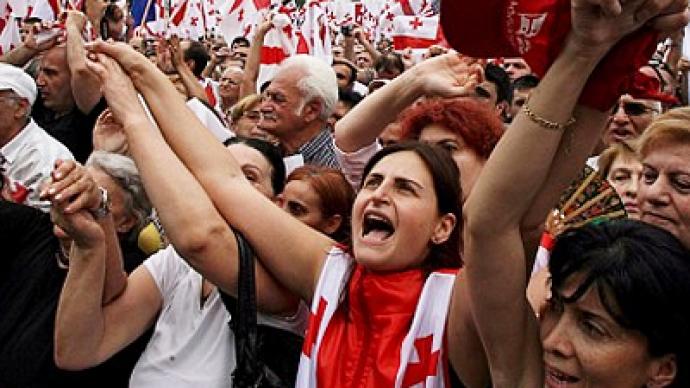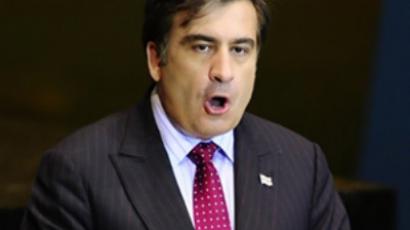Revolution road: three leaders, one aim and a divided Georgia

As Georgia approached the seventh anniversary of the Rose Revolution, the opposition Labour Party demanded that the event – currently seen as a model for successful non-violent protest – be seen as a coup d’etat.
They allso called for investigation and punishment of those responsible.Such initiatives from opposition parties appear from time to time all over the world. However, in the case of Georgia, even if an investigation took place, it would be quite short of suspects. Seven years after the Rose Revolution many of those who started it are in opposition, in exile or dead.The Rose Revolution was led by three politicians – Mikhail Saakashvili, Nino Burjanadze and Zurab Zhvania. These three people met with the president at the time, Eduard Shevardnadze, and negotiated the handover of power after non-violent but still massive protests rendered the official result of presidential elections not valid. They all shared the success of the Rose Revolution and occupied top posts in the new administration. But what happened to them in seven years?Mikhail Saakashvili is still the nation’s president, first elected by an almost unanimous vote. When his first term was coming to an end, mass street protests challenged his rule. Saakashvili ordered these protests dissolved, but this led only to aggravation of the internal political situation. He resigned and announced an early presidential election in January 2008. He won that election as well, but this time only with a tiny margin. More protests took place after this victory, but the opposition failed to change the situation. Zurab Zhvania, a veteran of Georgian politics who supported Saakashvili during the early stage of his political career, became prime minister in the new government. Zhvania’s experience and ties were of great help to the reformers, both politically and economically. However, one year after accepting the post, Prime Minister Zhvania was found dead in his apartment. Georgian police said he was killed by carbon monoxide from a faulty heater, but Saakashvili’s critics, including former president Shaverdnadze, said they did not believe that Zhvania’s death was a mere accident. The situation was then complicated even more as the man who made an official statement on the cause of death was shot dead by a “friend”.Parliamentary speaker Nino Burdjanadze retained her post after the Rose Revolution, except for a brief period when she, in accordance with the Constitution, temporarily acted as the nation’s president. These were periods before Saakashvili’s two elections – the triumph of 2004 and the much less evident victory of 2008. Throughout the Georgian reforms the head of the parliament showed its increasing disagreement with presidential course. In 2008 Burdjanadze said she was launching her own opposition party Democratic Movement United Georgia. As the leader of the new party, the former head of parliament said that the movement would be strongly oppositional to Saakashvili’s course and aimed toward restoring relations with Russia. Straight after the launch the new party fell victim to oppression from the authorities – most of the party’s leaders were detained by police on charges of illegal possession of weapons on the eve of the planned large-scale rally demanding Saakashvili’s resignation. Of course, there were more people behind the events that changed Georgia’s political course seven years ago and all these people share the fates of their three leaders. What seems obvious now is that Georgian society is far from unified, compared with 2003, if such unity really existed even back then.
Kirill Bessonov, RT














